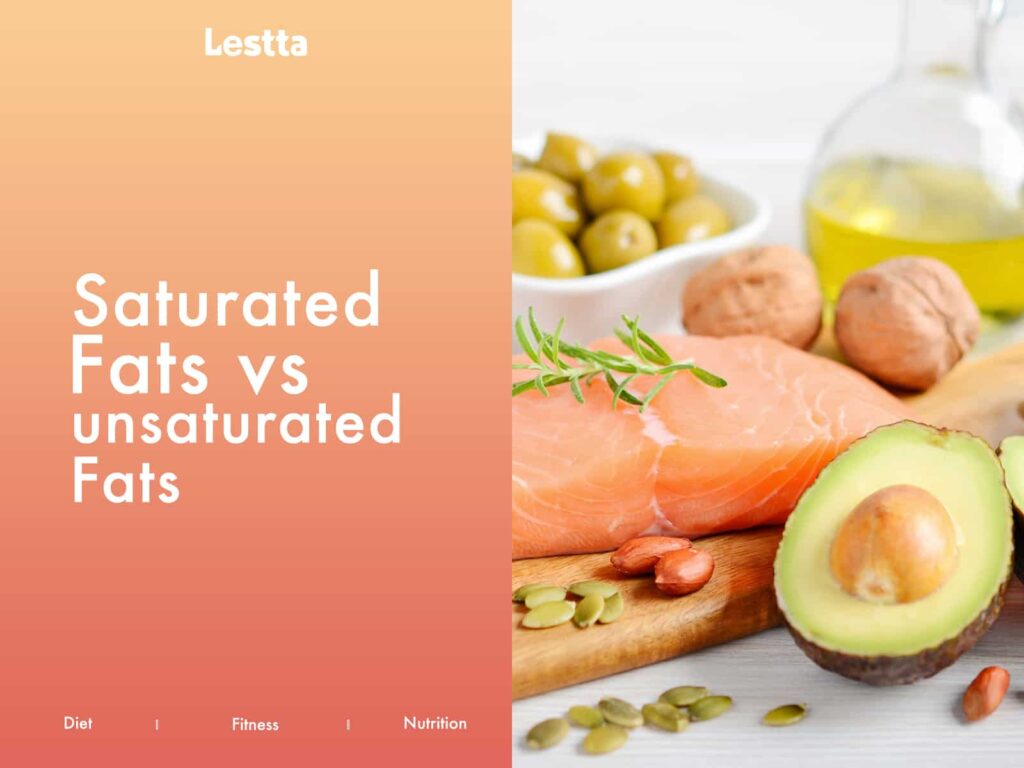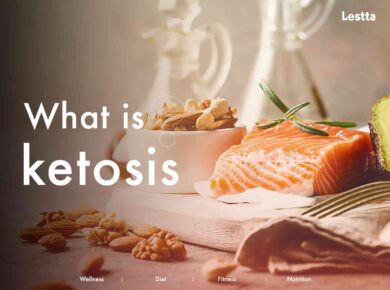
When it comes to dietary fats, Saturated fats and unsaturated fats play distinct role. in our health and well-being. In this article, we will explore the differences between them. And shed light on their impact on cardiovascular health and overall dietary choices.
Understanding Saturated Fats
Saturated fats are typically solid at room temperature. They are primarily found in animal products such as meat, dairy, and butter. They are also present in some plant-based sources like coconut oil and palm oil.
Research associated consuming excessive amounts of saturated fats with an increased risk of cardiovascular diseases, including heart disease and stroke.
Uncovering Unsaturated Fats
On the other hand. we find unsaturated fats primarily in plant-based sources and are typically liquid at room temperature. Research considers them as heart-healthy fats. They can be divided into two categories: monounsaturated fats and polyunsaturated fats.
Also, we can Monounsaturated fats in foods such as olive oil, avocados, and nuts. Whereas, polyunsaturated fats are abundant in fatty fish, flaxseeds, and walnuts. Incorporating these healthy fats into our diet can have positive effects on heart health and overall well-being.
The Impact on Cardiovascular Health
Scientists link high consumption of saturated fats to increased levels of low-density lipoprotein (LDL) cholesterol, also known as “bad” cholesterol. Elevated levels of LDL cholesterol can contribute to the development of plaque in the arteries, leading to atherosclerosis and an increased risk of heart disease.
Therefore, it is recommended to limit the intake of saturated fats and replace them with healthier alternatives, such as unsaturated fats. Unsaturated fats, particularly monounsaturated and polyunsaturated fats, have shown positive effects on cardiovascular health.
They can help reduce LDL cholesterol levels, improve blood lipid profiles, and decrease the risk of heart disease. Including these healthier fats in our diet, while maintaining an overall balanced approach, is crucial for promoting a healthy heart.
Making Informed Dietary Choices
To reduce the consumption of saturated fats and make healthier choices, consider the following tips:
- Choose lean sources of protein: Opt for lean cuts of meat, poultry without skin, and fish as protein sources, rather than high-fat options.
- Include plant-based fats: Incorporate foods rich in unsaturated fats, such as olive oil, avocados, nuts, and seeds, into your meals and snacks.
- Read labels: Pay attention to food labels and choose products with lower saturated fat content. Replace solid fats like butter and lard with healthier alternatives.
- Cook with healthier oils: Swap saturated fats like butter or coconut oil with healthier options like olive oil or canola oil when cooking or baking.
Conclusion
Understanding the difference between saturated fats and unsaturated fats is crucial for making informed dietary choices. Although saturated fats can contribute to an increased risk of cardiovascular diseases.
Yet unsaturated fats, specifically monounsaturated and polyunsaturated fats, have been associated with numerous health benefits, including improved heart health. Therefore, by limiting the intake of saturated fats and incorporating healthier fats into our diet, we can support cardiovascular health and overall well-being.
Remember to maintain a balanced approach and consult with a healthcare professional or registered dietitian for personalized guidance on your specific dietary needs.









